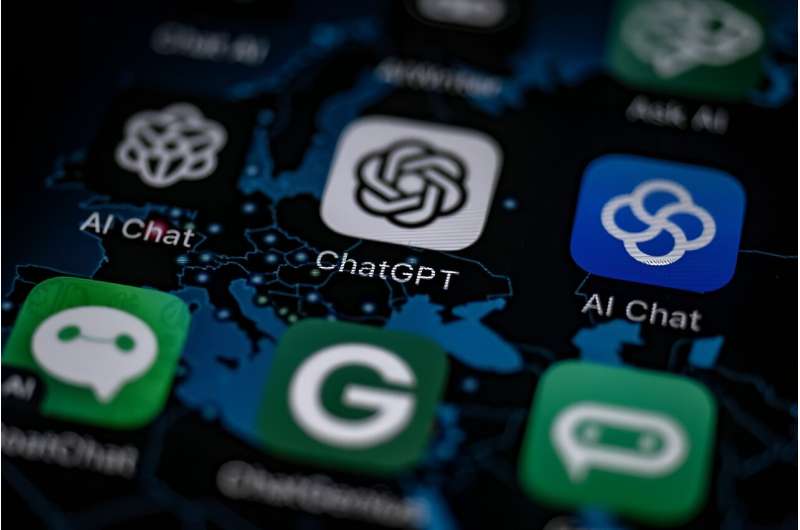This article has been reviewed according to Science X's editorial process and policies. Editors have highlighted the following attributes while ensuring the content's credibility:
fact-checked
reputable news agency
proofread
EU states greenlight landmark new AI rules

EU member states on Friday approved landmark rules on reining in artificial intelligence, after tough last-mile negotiations on the legislation billed as a world first.
Brussels first proposed an AI law in 2021 but spent most of last year racing to greenlight the text after chatbot ChatGPT exploded onto the scene.
EU states and lawmakers had agreed on a draft set of rules back in December, and their approval after that should have been a formality.
But some countries, including France and Germany, flagged concerns that raised fears the AI law would fail in the final stretch—leading to a new round of talks to nail down its contents.
EU ambassadors finally signed off on the text during a meeting Friday in Brussels, after French and German concerns were assuaged.
"We are very happy to announce that... ambassadors just unanimously confirmed the final compromise text," Belgium, which holds the EU's rotating presidency, said.
The EU's top tech enforcer, Thierry Breton, hailed the "historical, world-first, pioneering" rules.
"The AI Act unleashed a lot of passion ... and rightly so! Today member states endorsed the political agreement reached in December—recognising the perfect balance found by the negotiators between innovation and safety," he said.
China introduced rules on generative AI last year, while US President Joe Biden issued an executive order regulating the technology, but the EU's law is the most comprehensive, with binding rules on a wide range of issues from risk to copyright.
Protecting innovation
The EU law will regulate AI systems based on risk assessments of the software models involved—to be carried out by the firms themselves.
The higher the identified risk to individuals' rights or health, for example, the greater the systems' obligations.
Berlin and Paris had been particularly keen to protect AI startups, to prevent the rules from inhibiting future "European AI champions".
Seeking to address their concerns, the EU's executive arm in late January launched a package of pro-innovation measures to support European startups in AI development.
ChatGPT has demonstrated the dizzying advances of a technology—generative AI—that can quickly produce text, images and audio from simple commands in everyday language.
The easily-accessible chatbot from US-based OpenAI could create eloquent essays and passionate poetry within seconds, as well as pass medical and legal exams.
The world has been confronted at high speed with the dangers AI poses—from turbo-charging disinformation online to well as the proliferation of manipulated videos and images.
But it has also become clear that generative AI—which also includes Google's chatbot Bard—unleashes huge new opportunities that Europe wants to exploit.
Germany hailed the agreement. Economy Minister Robert Habeck said Berlin would focus on the "ease of innovation, legal clarity for businesses and necessary light and unbureaucratic structures" when implementing the law.
Germany's Digital Minister Volker Wissing congratulated himself earlier this week on "improvements" to the text "for small and medium-sized enterprises" that would "avert disproportionate requirements and ensure that we remain internationally competitive".
France also had concerns over copyright and generative AI, but an EU diplomat told AFP the text struck the right "balance between protecting copyright and trade secrets".
Warnings from industry
The European Parliament is due to vote on the text in March or April, before it becomes law. Lawmakers said they were confident the text would pass without any issues.
It should then be formally approved in May.
The law will not enter into force immediately, however. Some rules will apply within six months while other elements will kick in two years later.
CCIA, one of the main tech lobbying groups, said Friday's approval was an "important step" for the text's formal adoption but remained cautious.
"Despite efforts to improve the final text, after 'victory' was prematurely declared back in December, many of the new AI rules remain unclear and could slow down the development and roll-out of innovative AI applications in Europe," CCIA Europe's senior policy manager, Boniface de Champris, said.
© 2024 AFP
















